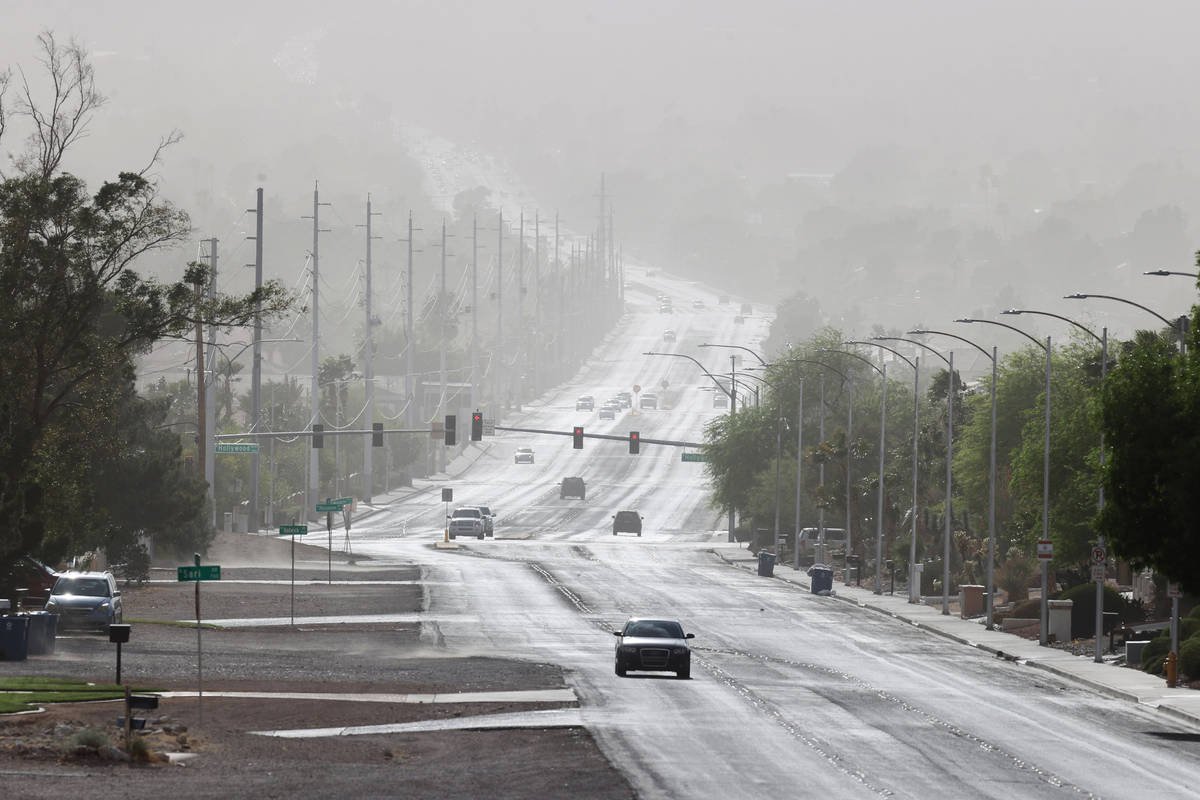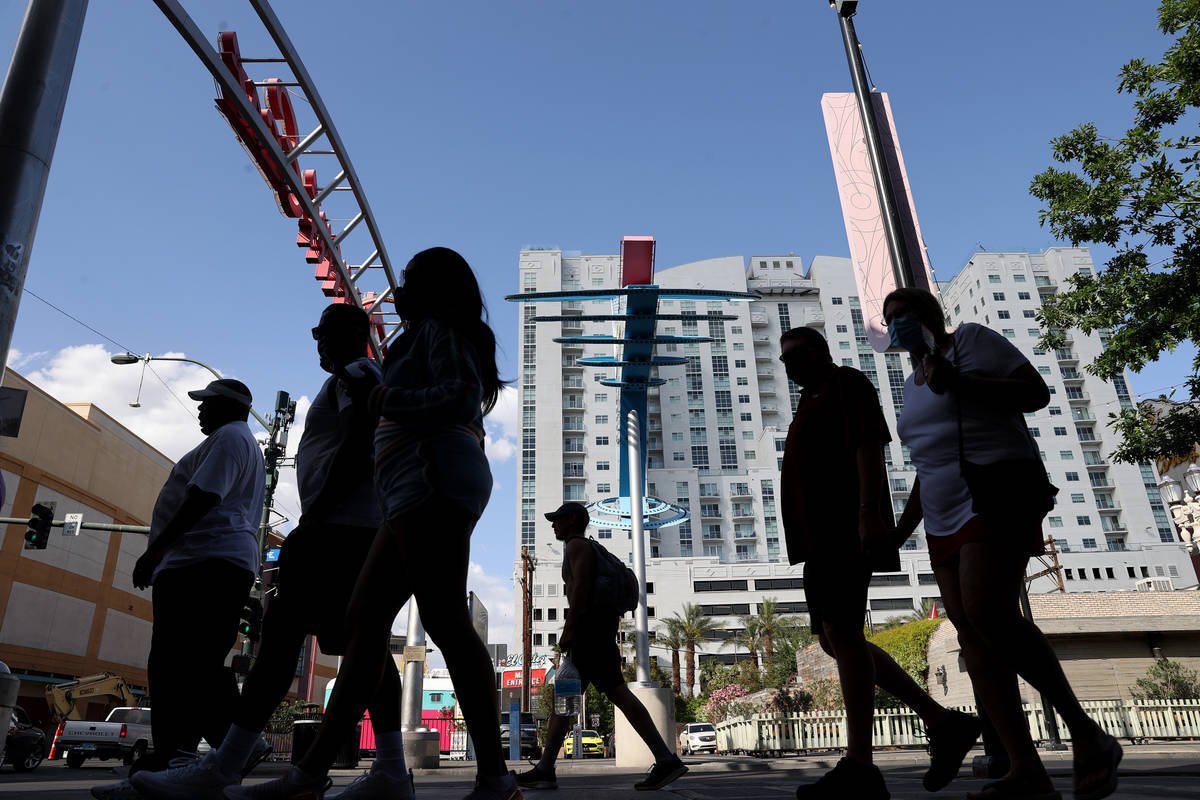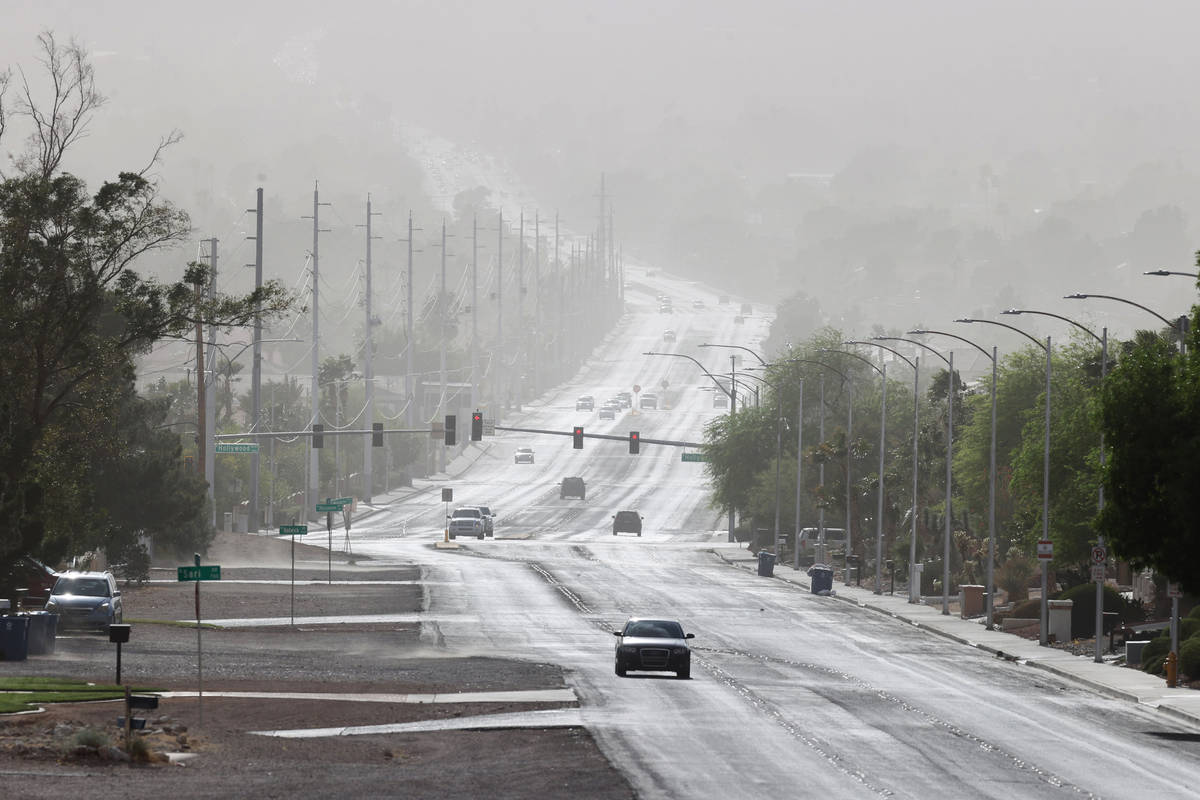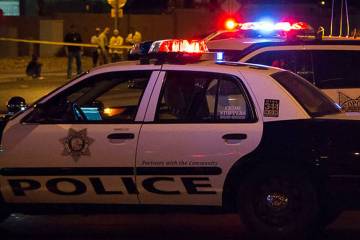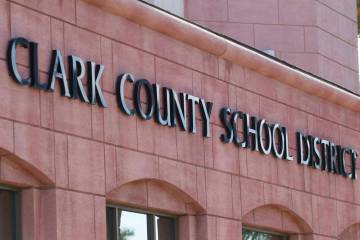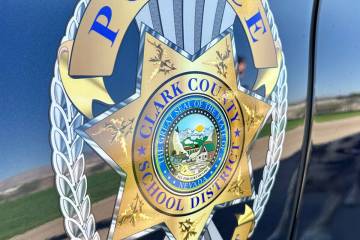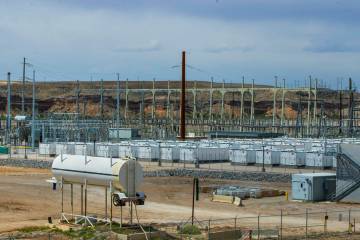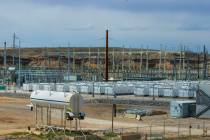Las Vegas ozone pollution improves, but remains high, report says
Ozone pollution in Las Vegas has improved, but the city still ranks among the most polluted metro areas in the country, according to a newly released report by the American Lung Association.
The annual “State of the Air” report, which analyzed air quality data from 2017-2019, ranked Las Vegas as the 12th most ozone-polluted metro area in the United States. The area was ranked ninth most polluted in last year’s report, which analyzed data from 2016-2018.
“This year’s report found out, while we are making some progress on national air quality, there are many communities that are still breathing unhealthy air,” said Melissa Ramos, manager for clean air advocacy for the American Lung Association. “Relative to Nevada, we continue to face the most significant air quality challenges, similar to last year’s report.”
Las Vegas remained the 25th most polluted city in terms of short-term particle pollution.
However, this year’s report did find a reduction in unhealthy ozone days and spikes in particle pollution in Nevada, Ramos said.
‘Sunburn on the lungs’
Ozone exists naturally in the atmosphere, but factors such as heat and vehicle emissions can cause ozone buildup at ground level.
“It kind of acts as a sunburn on the lungs when we breathe it in,” Ramos said.
Ramos said transportation remains the largest source of emissions and is contributing to ozone pollution.
Particle pollution increases due to hot temperatures, droughts, wildfires and other climate-related conditions, Ramos said. It can damage lung tissue and increase hospital visits for respiratory and cardiovascular issues, she said. Long-term effects can include lung cancer, she said.
Clark County received failing grades for high ozone days and high particle pollution days, according to the report. The county received a passing grade when particle pollution was measured annually. Overall, Clark County ranked the 17th most ozone-polluted county in the U.S., but did not make the top-25 list for short-term or annual particle pollution.
But the county says it disagrees with the American Lung Association’s grading system.
“We’re all in this same fight together, but we do have a disagreement with this report that they put out every year because the grading system, we don’t feel it fairly represents the air quality of Clark County,” said Kevin MacDonald, spokesman for the Clark County Department of Environment and Sustainability.
MacDonald said the county follows Environmental Protection Agency standards to the letter and has satisfactory marks in all but one pollutant category: ozone.
And Clark County is not far from meeting the EPA standard for ozone, he said. Since 2007, MacDonald said, ozone has decreased by about 14 percent.
“We still have work to be done, but we have gradually improved over the years, even as population has increased, and ostensibly more vehicles are on the road,” he said.
County questions grade
The disagreement isn’t new. Last year, Clark County called the county’s failing grade in the report “questionable” and noted that the ozone pollution level in the county is rated as “good” or “moderate” the vast majority of the time.
In an email, Ramos said the lung association’s report is intended to provide the public “in plain language” a look at air quality across the country.
“In Clark County, we’ve seen ozone pollution days cut in half since the first report in 2000, but we know we still have an ozone issue to tackle,” she wrote.
Lung-Wen Antony Chen, associate professor at UNLV and director of the Urban Air Quality Laboratory, said the American Lung Association’s rankings are fair. Las Vegas does have an ozone problem compared with other metro areas, he said.
He said the concentrated population, combined with hot weather and sunshine is what increases the ozone concentration in the summer.
Even though Clark County’s air quality is mostly within EPA standards, it is still not as good as other counties, he said.
“So, there are counties better than us,” he said. “And it doesn’t mean our air quality is bad, but it’s worse than those counties, those cities. That’s a fact, basically.”
Contact Blake Apgar at bapgar@reviewjournal.com or 702-387-5298. Follow @blakeapgar on Twitter.



